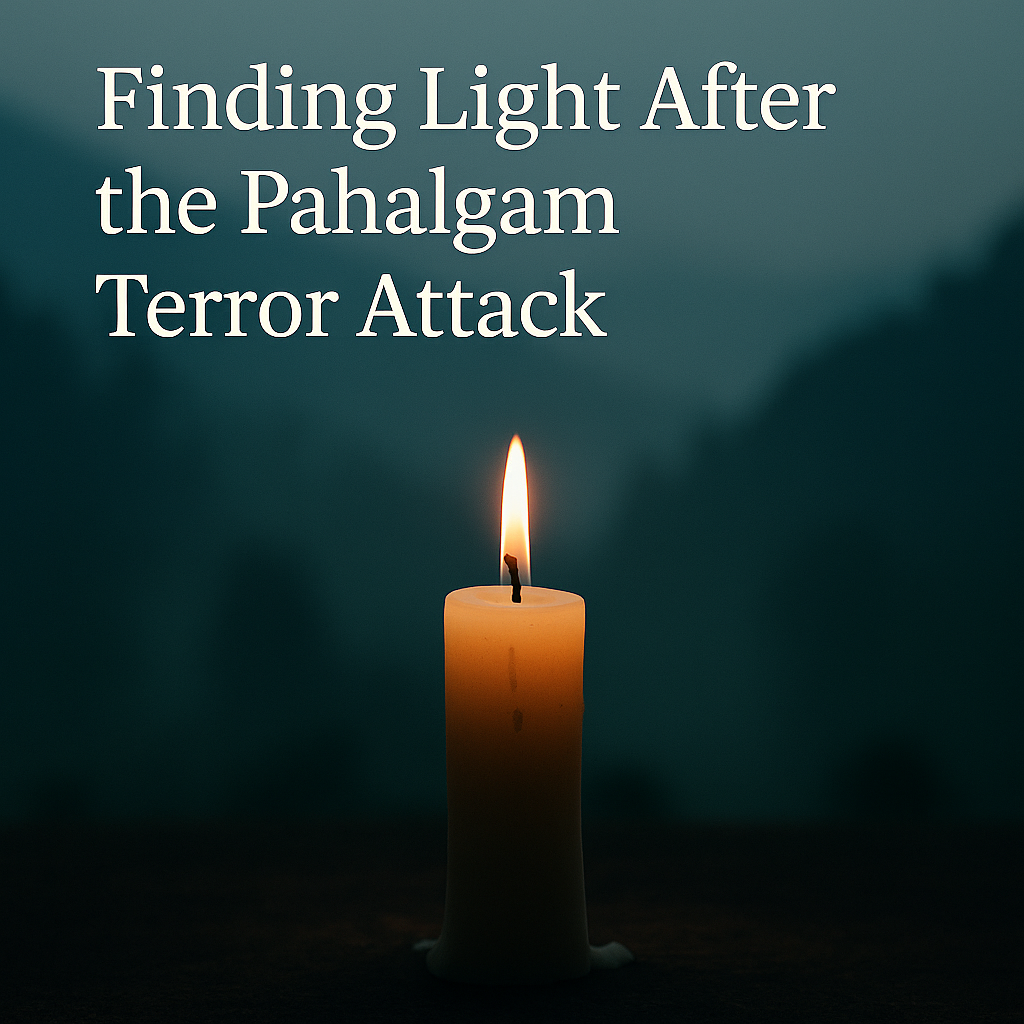
On April 22, 2025, the beauty of Kashmir was pierced by violence. In the serene valley of Pahalgam — a place known for pine trees, pony treks, and prayer — gunfire shattered the peace, taking the lives of 26 innocent civilians, most of them Hindu tourists, and injuring many more. The attackers moved methodically, cruelly, asking names before pulling triggers. This wasn’t just a terror attack; it was an attempt to divide, to provoke, and to break the very spirit of humanity.
But we must not let them succeed.
This moment demands more than political outrage. It asks us to sit with grief — to acknowledge it, to honor it, and to allow it to transform us into something stronger, not harder.
Grief Is Not Weakness. It’s the Beginning of Healing.
Grief is heavy, confusing, and at times unbearable. It doesn’t follow a neat schedule. It arrives in waves — sometimes with tears, sometimes with silence. For the families of those lost in Pahalgam, this grief is raw and real. But their grief belongs to all of us.
We must allow space for mourning, for remembering, and for holding each other. In a world addicted to speed and reaction, pausing to feel is an act of rebellion. Mindfulness isn’t a buzzword right now — it’s medicine. It is how we stay grounded when hatred tries to knock us off balance.
Leadership Begins with Listening
In the wake of this tragedy, real leadership is not about posturing or blame. It’s about presence. It’s about showing up in pain, not with hollow words, but with open hearts and sustained action.
Leaders, political, spiritual, or local, must resist the temptation to exploit grief. They must reject the narrative that the attackers hoped to create: one of religious division. This was not an attack by one faith on another. This was an attack by fear on unity.
True leaders will not stand as torchbearers of vengeance but as bridges of humanity. They will protect not just borders but the values we claim to stand for—dignity, compassion, and peace.
What the Terrorists Want — and What We Must Deny Them
Terrorism thrives on polarization. It feeds on headlines that divide, on rage that erupts, and on the myth that we are each other’s enemies.
Let us be clear: the victims of the Pahalgam attack were not just Hindus. They were humans. They were travelers, families, and dreamers. The attack was not just on individuals — it was on the idea of shared belonging.
To turn this into a religious conflict would be to do the terrorists’ job for them. And we refuse.
A Call for Collective Mindfulness and Action
Grief must lead to growth. We must now act — not with reaction, but reflection.
- Support a National Victim Support Body that provides long-term mental health care, financial aid, and rehabilitation for survivors and bereaved families.
- Cultivate mindfulness practices in schools, communities, and even in policymaking, so that trauma does not translate into generational cycles of hate.
- Elevate local heroes — like the Kashmiri pony handlers and Muslim families who sheltered victims — who remind us that humanity always outshines hate.
We Remember. We Resist. We Rebuild.
Let this article not just be shared, but felt. Let it not just spark sympathy, but solidarity. If you read this and feel the lump in your throat, the ache in your chest, stay with it. That is your humanity calling you to rise, to lead, to love louder than fear can scream.
In the stillness that follows sirens, in the prayers whispered across faiths, in the tears of strangers, grief becomes our teacher, and compassion becomes our power.
